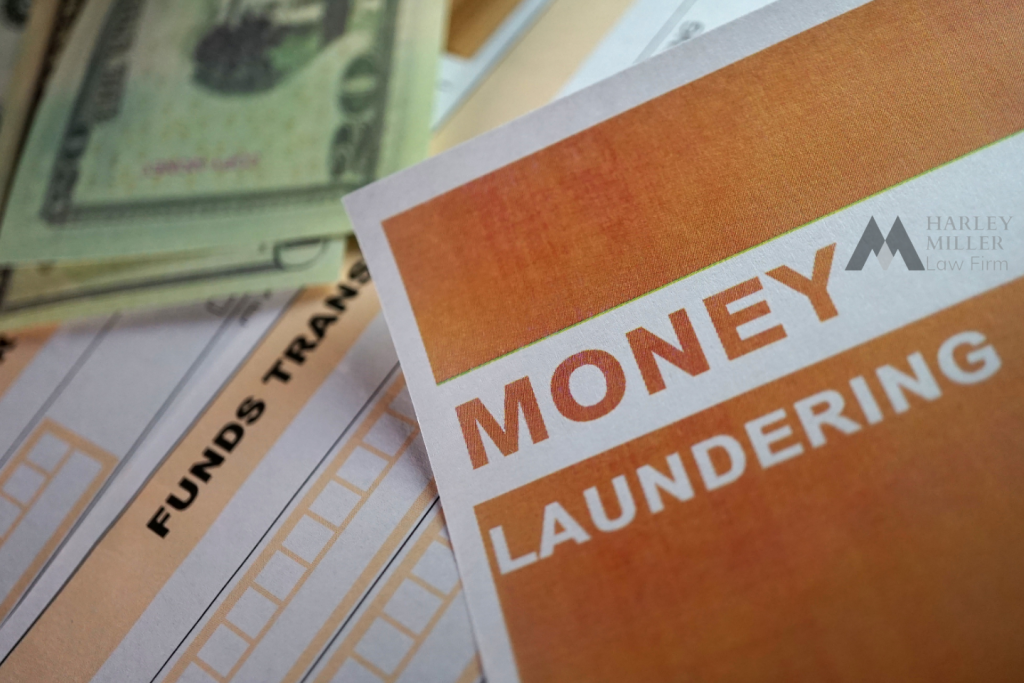Furthermore, a foreign company actively opened a derivative trading account with an enterprise to invest in bond futures listed in Ha Noi Stock Exchange (HNX), making deposits and payments via an indirect investment capital account opened in a Vietnamese commercial bank. Additionally, non-resident foreign investors can find investing in futures as an attractive opportunity to diversify their portfolios. In Vietnam, the VN30 Index Futures and Government Bond Futures serve as popular investment vehicles.However, before jumping into these markets, there are several key considerations that non-resident foreign investors should bear in mind.
What are VN30 Index Futures (“VN30 Futures”) and Government Bond Futures (“Government Bond Futures”)?
a. Derivative securities
Derivative securities are financial instruments in the form of contracts, including option contracts, future contracts, forward contracts, which confirm the rights and obligations of the parties to the payment of money, transfer delivery of a certan amount of the underlying asset as a specified price within a specified period of time or on a specified date in the future. Thus, derivative include futures contracts.
b. Future contract
– A future contract is a listed derivative that confirms the commitment between the parties to perform one of the following transactions:
i. Furthermore, investors have the option to buy or sell a certain amount of the underlying asset at a specified price on a specified future date, providing them with the opportunity to engage in strategic planning and risk management.
ii. Additionally, during the settlement process, investors are responsible for the payment of the difference between the value of the underlying asset determined at the time of entering into the contract and the value of the underlying asset on a specified future date, enabling them to effectively manage their financial obligations and mitigate potential losses.
– Futures contracts include two types:
i. Stock Index Futures Contract (“Index Futures”) is a futures contract based on the underlying asset of a stock index; and
The Vietnam Stock Exchange designs the underlying asset of an index futures contract, which is a stock index, based on the principles of index construction and management issued by the Vietnam Stock Exchange. After reporting and approval by the State Securities Commission (“SSC”), the index is utilized.
ii. Government bond futures contract (“Government bond futures contract”) According to Clause 18, Article 2 of Circular 58/2021/TT-BTC stipulating the concept of Government bond futures contract is a futures contract based on the underlying asset, which is a government bond or a hypothetical bond that has some basic characteristics of a government bond.
The underlying assets of the Government bond futures contract are:
(1) Government bonds are being traded on the market; or
(2) The bond is assumed to have some basic characteristics of Government bonds.
The Vietnam Securities Depository and Clearing Corporation (VSDCC) regulates the performance of futures contracts on government bonds at maturity. This is done through cash payment or transfer of the underlying asset. The announcement of payment methods must occur before listing government bonds.
Thus, the VN30 futures contract and the Government bond futures contract that foreign investors intend to trade with an account opened at VNDirect are considered derivative securities, and both must meet certain conditions to participate in the transactions.

What conditions do foreign investors need to meet to participate in derivatives trading?
Since a foreign investor is a company established and operating under foreign laws and headquartered in a foreign country, it is considered a foreign organization. Derivative investment means investors buying, selling and holding derivative securities on the stock market. Derivatives trading means the performance of one or some or all of the following activities: derivatives brokerage, derivatives trading, derivatives investment consulting.
Foreign organizations may participate in investing in derivatives in Vietnam, except for cases where foreign organizations are banned by competent authorities from conducting securities activities for a definite or permanent period of time due to violations in such activities. activities on securities and cases in which conditions must be met to make securities investment.
In which, cases that must meet the conditions for investment in derivatives include:
i. A securities company may only invest in derivatives after it has been granted the Certificate of eligibility for derivatives trading by the State Securities Commission to conduct derivatives trading activities;
ii. The fund management company is only allowed to invest in derivative securities for the purpose of hedging for the portfolio of securities it is holding with respect to entrusted capital from portfolio management; Fund management companies are only allowed to invest in derivative securities for the purpose of preventing risks in accordance with the law on securities investment funds with respect to capital sources of securities investment funds and securities investment companies. The fund management company is not allowed to invest in derivative securities from its own capital, borrowed capital and other lawfully mobilized capital sources;
iii. Credit institutions, foreign bank branches may invest in derivatives only after obtaining written approval from the State Bank;
iv. Insurance enterprises and branches of foreign insurance enterprises may only invest in derivative securities in accordance with the law on insurance business;
v. State-owned economic groups, state-owned corporations and state-owned enterprises may only invest in derivatives after they have been permitted by a competent state agency to do so in accordance with the law on management. use state capital in production and business activities at enterprises.
Thus, foreign investors can conduct derivatives investment activities if they do not fall into the conditions mentioned above.

What could be the offenses relating to derivatives investment?
1. Security market manipulation
In accordance with Decree 156/2020/ND-CP and Criminal Code 2015, security market manipulation refers to illegal actions taken in relation to securities and activities in the security market. This can include one or more of the following actions:
i. Creating false demand and supply by continuously buying and selling securities using one or multiple accounts of the offender or someone else, or colluding with another person.
ii. Individuals collaborate with another person to place orders for purchasing and selling the exact same type of securities within the same day, or perform transactions where they do not actually transfer ownership or only transfer it within a group, all with the purpose of manipulating demand and supply.
iii. Purchasing or selling securities with a significant quantity of control during market opening or closing times to manipulate the opening or closing price for that particular security on the market.
iv. Engaging in coordinated trading activities with another person, or inducing someone to repeatedly place buy or sell orders in order to significantly impact securities demand, supply, and prices, with the aim of manipulating securities prices;
v. Expressing opinions, either directly or through the media, about a particular type of security or securities issuer with the purpose of influencing the price of that security after a transaction has already taken place, in order to gain an advantage from it; or
vi. Deploying other tactics or engaging in other actions that create fake supply and demand conditions, with the goal of manipulating securities prices.
2. Money laundering
Furthermore, in accordance with the Criminal Code of 2015 and the Law on Prevention of Money Laundering in 2022, authorities consider individuals or organizations engaging in money laundering to legitimize the proceeds acquired through criminal activities. This offense encapsulates the following actions:
i. Engaging directly or indirectly in financial transactions, banking transactions, or other transactions to disguise the illegal origin of money or property acquired through their own commission of a crime or that of another person known to them to have committed a crime;
ii. Using money or property obtained through their own commission of a crime or that of another person known to them to have committed a crime for business endeavors or other activities;
iii. Concealing information regarding the actual origin, essence, whereabouts, movement, or possession of money or property obtained through their own commission of a crime or that of another person known to them to have committed a crime, or impeding the validation of such information; and
iv. Carrying out any of the offenses designated in Points (i), (ii), and (iii) mentioned earlier with knowledge that the money or property involved stems from the transfer or conversion of proceeds obtained through another person’s commission of a crime.

3. Infringements of guidelines on conducting foreign exchange activities
Moreover, Decree No. 88/2019/ND-CP effectively addresses administrative violations to tackle any breaches of regulations concerning foreign exchange activities. Furthermore, investors may potentially commit certain violations, including:
i. Investors may commit some violations, such as purchasing or selling foreign currency at unauthorized institutions, thereby exposing themselves to the risk of penalties and legal consequences.
ii. Paying for goods and services using foreign currency in violation of applicable laws;
iii. Buying or selling foreign currency at exchange rates that do not match those prescribed by the State Bank;
iv. Remitting or transferring foreign currency or Vietnamese dong into or out of Vietnam in violation of relevant legal regulations;
v. Transactions, quotations, valuations, and pricing terms stated in contracts, agreements, advertisements, land use rights, or other similar documents (including conversions or adjustments of prices of goods or services, as well as the value of contracts or agreements) denominated in foreign currency that do not conform to applicable laws;
vi. Some of the violations that investors may commit include opening, closing, or using foreign currency accounts established overseas in contravention of relevant legal regulations, which can result in severe penalties and legal repercussions.
vii. Conducting local loan payments in foreign currency in violation of applicable legal regulations;
viii. Failing to sell collected foreign currency to credit institutions as stipulated in relevant laws;
ix. Neglecting to adhere to legal regulations pertaining to foreign borrowing or the repayment of loans, as well as failing to comply with rules concerning foreign loan provision or recovery, sponsorship for non-residents, and other capital transactions, can have serious consequences.;
x. Engaging in foreign exchange transactions that do not adhere to applicable laws can lead to significant repercussions. Additionally, such actions can result in legal penalties and financial losses.

Conclusion
In conclusion, non-resident foreign investors need to be aware of the regulations and procedures when investing in VN30 Index Futures and Government Bond Futures in Vietnam. They should ensure compliance with the rules on foreign exchange activities and securities trading, as well as understand the tax implications and risk management strategies before making any investment decisions. By working with reputable brokers and consulting with experienced professionals, non-resident foreign investors can effectively mitigate potential risks and significantly maximize their returns from investing in VN30 Index Futures and Government Bond Futures in Vietnam.
HMLF is always available to offer assistance in understanding the procedures with authorities.

Harley Miller Law Firm “HMLF”
Head office: 14th floor, HM Town building, 412 Nguyen Thi Minh Khai, Ward 05, District 3, Ho Chi Minh City.
Phone number: +84 93 721 5585
Website: hmlf.vn Email: miller@hmlf.vn


